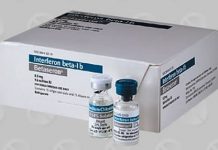Gestational diabetes is a condition that affects about seven percent of pregnant women according to DiabetesNetwork.com.
Diabetes that is brought on by pregnancy is called gestational diabetes. It’s important to find out if the mother has this type of diabetes so the pregnancy can continue unaffected by this new finding. Gestational diabetes is a form of Type 2 diabetes which is caused by the hormones of pregnancy or a shortage of insulin. Gestational diabetes tends to go away once the baby is born.
Glucose Challenge Screening Test
The first test (and only test for some women) is the Glucose Challenge Screening Test. It is done between weeks 24 and 28 and is a standard test during pregnancy. No preparation is needed before arriving to the appointment but do plan to stay at the doctors office for an hour and inform the medical assistant your condition and that you need take a diabetes test.
During this test the mother drinks glucose (a sweet liquid) and an hour later will have blood drawn to determine how the body processes sugar. A positive or high result means the body may not be processing sugar correctly and the woman may have to go through a second glucose test.
Glucose Tolerance Test
The second glucose test is the Glucose Tolerance Test and has lots of preparation prior to the appointment. It’s best to schedule this appointment early in the morning because there is no eating or drinking 14 hours before the test besides sips of water. Also, the woman has to eat at least 150 milligrams of carbohydrates each day at least three days before the appointment.
When arriving to this appointment the mother’s blood will be drawn and then she will need to drink a larger or more concentrated dose of the glucose. Her blood will be drawn and tested every hour for the next three hours.
If two or more readings come back positive or abnormal, the woman will be diagnosed with gestational diabetes and will go over a treatment plan with her doctor. If only one test result comes back abnormal the woman may have to be tested again or modify her diet.
AmericanPregnancy.org lists these values as abnormal during the Glucose Tolerance Test:
- Fasting (First Blood Draw) 95 or greater milligrams
- One Hour Blood Draw 180 or greater milligrams
- Two Hour Blood Draw 155 or greater milligrams
- Three Hour Blood Draw 140 or greater milligrams
Symptoms
Although symptoms of gestational diabetes are mild for the mother, it may cause problems for the baby. Symptoms may include large birth size, birth trauma, jaundice and hypoglycemia according to DiabetesNetwork.com.
A study done between 2000 and 2005 by Kaiser Permanente’s Center for Health Research shows that treating gestational diabetes can break the chain between the gestational diabetes and childhood obesity. Mothers who had gestational diabetes but did not get treatment during pregnancy doubled the risk of their child being obese by the ages of five to seven.
Prevention
To try to prevent the onset of gestational diabetes, a woman should eat a balanced diet with healthy foods, exercise daily and if overweight, try to lose some pounds as recommended by a doctor.











